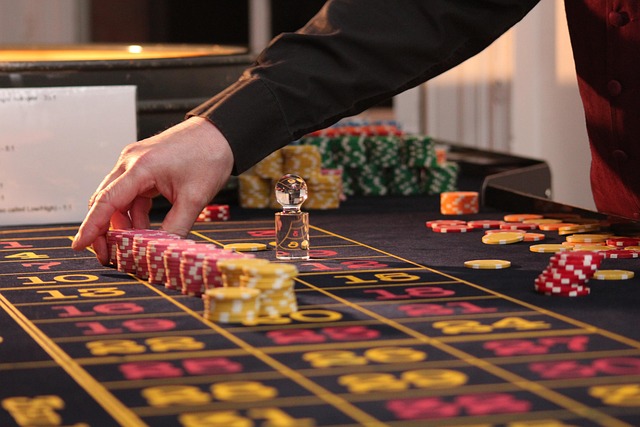Introduction: From Everyday Lives to Extraordinary Wins
There’s something magnetic about stories where someone goes from average to millionaire overnight. It’s not just greed or envy—it’s the raw possibility. A warehouse worker hits a $1.2 million slot jackpot. A part-time sports fan makes a bold parlay bet and walks away set for life. These aren’t just wins; they’re modern legends, and we can’t look away.
Part of what makes these stories stick is the mix of luck, skill, and timing. Anyone can buy a lottery ticket. But staying cool at a poker table for ten hours straight? Spotting a pattern in football stats before the oddsmakers do? That edge—the intersection of preparation and guts—is what separates a gamble from a strategy. Still, let’s be clear: luck always has a seat at the table, and the house almost always wins. That tension is what keeps people interested.
This article explores those rare but real moments when an ordinary life blows wide open through gambling. We won’t glamorize reckless betting or sell dreams of instant riches. Instead, we’ll take a level-headed look at people who beat the odds, how they did it, what happened next—and what the rest of us can learn before putting anything on the line.
The Spark: What Drives People to Gamble Big
People don’t wake up one day and decide to risk everything. For most, it starts small—online poker during lunch breaks, fantasy sports with coworkers, a modest bet on a Sunday game. Then something clicks. A win, a close call, or just the thrill itself. The line between hobby and high-stakes ambition gets blurry.
At the core of this shift is the psychology of risk. Not everyone is wired the same. Some are naturally more comfortable riding the edge—chasing adrenaline, testing limits, and trusting their gut. That doesn’t always mean irrational. High-stakes gamblers often show a surprising mix of nerve and control. They’re willing to lose, but not blindly. They do the math. They study patterns. They know when to fold—or at least when to pause.
Common traits among winners? Focused attention, appetite for calculated risk, and the ability to detach emotionally—win or lose. They treat games like systems, not just luck machines. Many also show obsessive attention to learning, tracking odds, studying opponents, or mastering a strategy. These aren’t impulsive flukes. They’re sharp minds tuned for specific outcomes.
But here’s the quiet truth: for many, the shift from casual play to serious betting doesn’t come with a declaration. It just… builds. A few more hours a week. A little more cash on the line. Then, one day, they’re in deep—not always chasing riches, but chasing the game itself.
Case Studies: Real People, Real Wins
Before the headlines and oversized checks, most of these people were just coasting through ordinary lives. A 44-year-old truck mechanic from Ohio, Marcus never expected much beyond his next route. Then a modest poker hobby, honed on weekends, turned into a six-figure WSOP qualifying win. Marcus didn’t get lucky at a slot machine—he read thousands of hands, studied odds religiously, and stayed stone-faced when it counted.
Then there’s Priya, a data analyst from Toronto, who quietly ran a sports betting spreadsheet on the side. What started as curiosity became a system. She wasn’t guessing—she was optimizing. A few strategic parlays pushed her over the million mark. She never shouted about it. Just logged off Slack one Friday and didn’t come back.
Gabe was different—he didn’t lean on logic, he followed gut. A former night shift bartender, he scrounged together $100 and bet it all on an underdog horse he’d been watching for months. The payout? $750,000. No system, no formula. Just obsession, instinct, and the nerve to act when the moment hit.
The common thread? These weren’t adrenaline junkies or serial risk-takers. They were focused, patient, and oddly practical. They put in quiet work before the big moment. When the odds tipped their way, they were prepared. For more stories like these, check out Inspirational Stories of Big Wins Against the Odds.
Skill vs. Chance: The Games That Created Millionaires
Not all gambling games are equal—and neither are the gamblers. Some built fortunes with logic and grit. Others, pure luck. Here’s the breakdown:
Poker: decision-making, stamina, and emotional control Million-dollar poker wins don’t come easy. It’s a long game—built on skill, pattern recognition, and managing tilt. Top earners don’t just rely on reading opponents; they track probabilities, master position, and know when to fold. One common thread? Discipline. They stick to the numbers, stay emotionally neutral, and grind through hour after hour, hand after hand.
Sports betting: analytics meets obsession The successful sports bettors aren’t guessing. They’re running models, scraping stats, and spotting mispricings faster than the books can adjust. It takes obsession-level focus. Many came from finance or data science backgrounds. It’s less about loving the game, and more about exploiting edges—tiny, fleeting ones—that the average fan never sees.
Blackjack and edge strategies: card counting in the real world It’s legal, but casinos don’t like it. Card counters track ratios, play within strict rules, and bet big only when they’ve got an edge. Most million-dollar blackjack runs happened before surveillance and smart shoes became the norm. But even now, some small teams still pull it off—with math, stamina, and nerves of steel.
Where pure chance (slots, lottery) can still change a life Then there’s the raw luck route. No edge, no plan. Just a ticket or a button press. Some big winners hit jackpots completely unaware of odds or probability. These are the exceptions—but they do happen. Pure chance isn’t smart, but it can still flip a life overnight.
In every game, the tools are different. Sometimes it’s skill. Sometimes it’s stats. Sometimes, a coin toss.
The Aftermath: What Happens After the Jackpot
Winning big doesn’t come with a manual. Some overnight millionaires turned their windfall into lasting wealth—paying off debt, investing smart, building businesses. Others? Burned through millions chasing more wins, funding fleeting lifestyles, or struggling to adjust to sudden access.
The lifestyle changes come fast: new homes, strangers asking for help, and more pressure to maintain the image of success. For many, that spotlight is blinding. A few winners went quiet, disappeared from public view, choosing peace over flash. Others chased the attention—only to crash hard when luck, or the money, ran out.
Mental health often takes the biggest hit. Sudden fame intensifies everything: anxiety, mistrust, impostor syndrome. Long-time relationships get tested. Some break. Reinvention becomes essential—because being “the person who got lucky” won’t be enough long-term. The real winners? The ones who treat the jackpot as a chapter—not the whole story.
Lessons Learned: What Ordinary People Can Take Away
Sustainable gambling doesn’t mean never taking risks. It means knowing when those risks make sense—and when they don’t. The difference between a calculated opportunity and chasing a fantasy can be subtle, but it’s everything. One is built on patterns, data, and restraint. The other is all emotion and blind faith.
Most people don’t lose because they’re bad at the game—they lose because they ignored the rules, their budget, or their own limits. The best gamblers, the ones who actually make money over time, treat the game like a business. They study. They respect variance. And they know how to walk away.
Boundaries matter. So does game knowledge. You don’t beat poker or sports betting through raw luck—you beat it by knowing more than the next person and staying sane under pressure. That doesn’t mean obsession. It means discipline.
At the end of the day, win stories are fun to read. But the smarter takeaway? Play with your eyes open. Be prepared for the losses. Celebrate the wins. And always know when to shut it down. No million is worth your peace of mind if you had to lose yourself to chase it.
Conclusion: Not Just Luck — A Mix of Grit and Game
The gamble is real—but so is the fallout when it goes sideways. For every headline-grabbing win, there are thousands of losses no one posts about. That doesn’t mean these stories aren’t inspiring. They are. But treat them like the exception, not the rule.
These tales say one thing clearly: fortune favors action, not just dreams. But they’re not a playbook. What worked for one person—timing, instinct, a rare streak—won’t repeat on command. The danger is in thinking you can copy someone else’s lightning strike.
At the end of the day, take the lesson, not the path. Some risks pay off. Most don’t. Be calculated. Be clear-eyed. And if you gamble, do it with your eyes open and your feet on the ground.


 Edna Jaggerlic contributes to mediagamblesaga with a sharp focus on digital media and the evolving world of gambling technology. Her writing breaks down industry shifts and innovations, making complex trends clear and accessible to readers.
Edna Jaggerlic contributes to mediagamblesaga with a sharp focus on digital media and the evolving world of gambling technology. Her writing breaks down industry shifts and innovations, making complex trends clear and accessible to readers.

